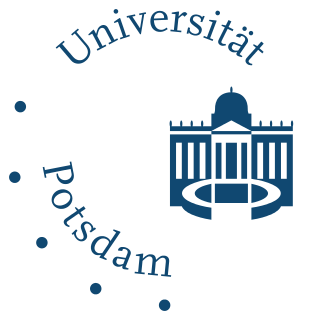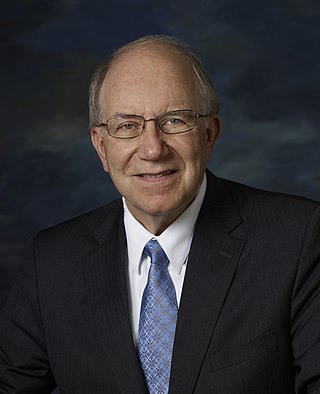The Association of Teachers of Japanese (ATJ) is "an international, non-profit, non-political organization of scholars, teachers, and students of Japanese language, literature, and linguistics dedicated to teaching and scholarship and to the exchange of information among teachers and other professionals to help broaden and deepen knowledge and appreciation of Japan and its culture." It is based out of the University of Colorado in the United States.
One of the ATJ's main aims is to assist in the improvement of the quality of the teaching of Japanese language, Japanese literature, Japanese linguistics and Japanese culture at both a secondary and post-secondary level. To that end, it provides advice on related matters to individuals or institutions that request it.
As well as providing a conduit for exchange of information, the ATJ is also engaged in assisting those with an interest in studying in Japan, from providing information both pre- and post-departure, to offering Bridging Foundation scholarships to US undergraduates who are planning to study abroad in Japan.
The ATJ produces several publications - a newsletter four times a year, in September, February, November and April, and the twice-yearly Japanese Language and Literature , formerly The Journal of the Association of Teachers of Japanese, available in April and November. The newsletter offers news of the association, details of programs and workshops, job listings, and regional news, whereas Japanese Language and Literature contains scholarly articles related to the fields with which the ATJ is concerned.
For those working within the field, the ATJ offers a directory of current job vacancies as well as a variety of materials for use in the classroom with respect to both Japanese culture and language. It also has on-line special interest groups (SIGs) for those interested in Classical Japanese, Heritage Language study, Study Abroad for Advanced Skills, Community College Japanese, and Professional Development.
For more detailed information or contact details, see the ATJ's website.
Computer-assisted language learning (CALL), British, or computer-aided instruction (CAI)/computer-aided language instruction (CALI), American, is briefly defined in a seminal work by Levy as "the search for and study of applications of the computer in language teaching and learning". CALL embraces a wide range of information and communications technology applications and approaches to teaching and learning foreign languages, from the "traditional" drill-and-practice programs that characterised CALL in the 1960s and 1970s to more recent manifestations of CALL, e.g. as used in a virtual learning environment and Web-based distance learning. It also extends to the use of corpora and concordancers, interactive whiteboards, computer-mediated communication (CMC), language learning in virtual worlds, and mobile-assisted language learning (MALL).

The Japan Exchange and Teaching Programme, or JET Programme, is a teaching program sponsored by the Japanese government that brings university graduates to Japan as Assistant Language Teachers (ALTs), Sports Education Advisors (SEAs) or as Coordinators for International Relations (CIRs) in local governments and boards of education.
The Fulbright Program, including the Fulbright–Hays Program, is one of several United States Cultural Exchange Programs with the goal of improving intercultural relations, cultural diplomacy, and intercultural competence between the people of the United States and other countries through the exchange of persons, knowledge, and skills. Via the program, competitively-selected American citizens including students, scholars, teachers, professionals, scientists, and artists may receive scholarships or grants to study, conduct research, teach, or exercise their talents abroad; and citizens of other countries may qualify to do the same in the United States.

The Goethe-Institut is a non-profit German cultural association operational worldwide with 159 institutes, promoting the study of the German language abroad and encouraging international cultural exchange and relations. Around 246,000 people take part in these German courses per year.

Hankuk University of Foreign Studies is a private research university based in Seoul, in South Korea. HUFS consistently ranks as one of the best universities in South Korea. The university currently teaches 45 foreign languages. In addition, it contains studies in humanities, law, social sciences, business, medical science, natural sciences, and engineering.

A student exchange program is a program in which students from a secondary school or higher education study abroad at one of their institution's partner institutions. A student exchange program may involve international travel, but does not necessarily require the student to study outside their home country.

Daughters of Mary Help of Christians Siu Ming Catholic Secondary School (天主教母佑會蕭明中學), founded in 1973, is a girls' secondary school in Kwai Chung, Hong Kong. It is administered under the Grant Code and using English as a medium of instruction, or being an "EMI school".
The Historical Association is a membership organisation of historians and scholars founded in 1906 and based in London. Its goals are to support "the study and enjoyment of history at all levels by creating an environment that promotes lifelong learning and provides for the evolving needs of people who share an interest in history." The association's patron was Queen Elizabeth II. The Historical Association was incorporated by royal charter in 2006, its centenary year. Legally it is a charity registered in England. The plan for a national historical association came from a group school teachers. The formation was handled by university academics, especially Charles Firth, Albert Pollard, and Thomas Tout. At first it dealt chiefly with teaching problems. The membership was expanded to include laymen, and the association branched out into activities such as publication and research in local history.

The University of Potsdam is a public university in Potsdam, capital of the state of Brandenburg, Germany. It is mainly situated across three campuses in the city. Some faculty buildings are part of the New Palace of Sanssouci which is known for its UNESCO World Heritage status.

The National University of Modern Languages (NUMLs) (Urdu: قومی جامعہ برائے جدید لسانیات) is a multi-campus public university with its main campus located in Islamabad, Pakistan and other campuses in different cities of Pakistan.
Japanese language education in the United States began in the late 19th century, aimed mainly at Japanese American children and conducted by parents and community institutions. Over the course of the next century, it would slowly expand to include non-Japanese as well as native speakers. A 2012 survey of foreign-language learners by the Japan Foundation found 4,270 teachers teaching the Japanese language to 155,939 students at 1,449 different institutions, an increase of 10.4% in the number of students since the 2009 survey. The quality and focus of dialogues in Japanese textbooks meant for English-speakers has changed since the 1970s. As of 2021, according to the Japan Foundation, 161,402 people were learning Japanese in United States.
LLAS was a staff development centre based at the University of Southampton which provided services to academic staff across the UK teaching Languages, Linguistics and Area Studies in higher education. Its first incarnation was as a subject centre of the Learning and Teaching Support Network (2000-2004), then a subject centre of the Higher Education Academy (2004-2011). Its second incarnation was as an enterprise unit of the University of Southampton.

The Balassi Institute is a worldwide non-profit cultural organization funded by the Ministry of Foreign Affairs (Külügyminisztérium) of Hungary. The institute spreads and promotes Hungarian language and culture abroad, and plays a key role in developing and attaining Hungary's objectives in the area of cultural diplomacy. As an organizational hub, it coordinates and directs all activities provided by Hungarian institutes abroad.
It is named after the Hungarian Renaissance lyric poet Bálint Balassi.
English studies is an academic discipline taught in primary, secondary, and post-secondary education in English-speaking countries. This is not to be confused with English taught as a foreign language, which is a distinct discipline. An Anglicist is someone who works in the field of English studies. The English studies discipline involves the study, analysis, and exploration of texts created in English literature.
Universia is a network that consists of 1,401 universities in 20 countries: Andorra, Argentina, Bolivia, Brazil, Chile, Colombia, Costa Rica, Ecuador, El Salvador, Spain, Guatemala, Honduras, Mexico, Nicaragua, Panama, Paraguay, Peru, Portugal, Dominican Republic and Uruguay. It has 20 internet sites, one for each country, and a global site which offers information and contents from across the network. Universia network represents 10.1 million students, 8 million users and 850,000 university teaching staff ; the network is sponsored by Santander Bank.
The American Association of Teachers of Spanish and Portuguese is a language-specific professional association in the United States that was founded on December 29, 1917, in New York City as the American Association of Teachers of Spanish. The name was changed to the present one when Portuguese was added to the association's mission in 1944.
The Commission for Educational Exchange between the United States of America, Belgium, and Luxembourg is located in Brussels, Belgium, with the office situated at the Royal Library Albert I. It is a not-for profit organization that is responsible for administering Fulbright grants for citizens of Belgium and Luxembourg. It also serves as the EducationUSA Advising Center in Belgium.

Dan E. Davidson is an American linguist working at the intersection of Russian studies, second-language acquisition and international educational development. He is the president emeritus and co-founder of American Councils for International Education and professor emeritus of Russian and Second Language Acquisition at Bryn Mawr College.
Teaching English as a foreign language (TEFL), Teaching English as a second language (TESL) or Teaching English to speakers of other languages (TESOL) are terms that refer to teaching English to students whose first language is not English.